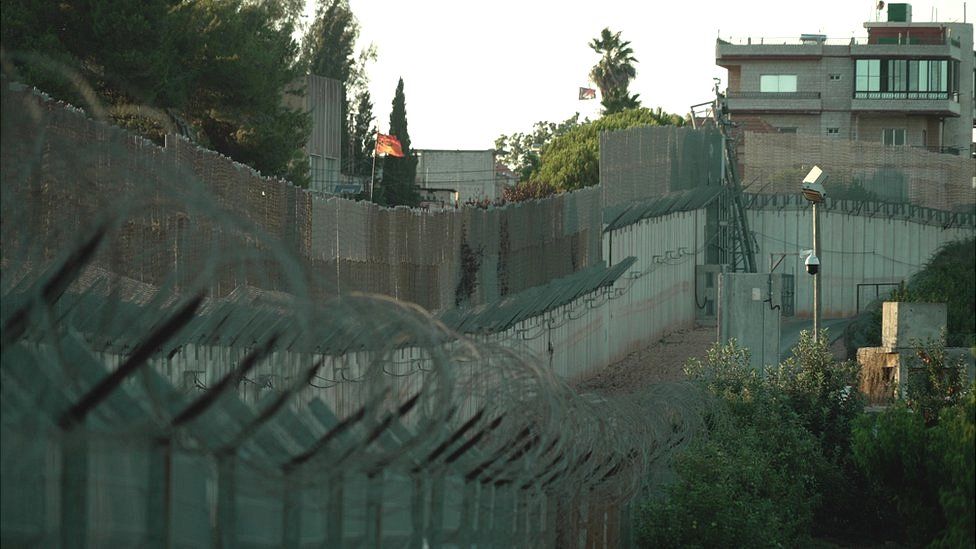-

-
-
Loading

Loading

The drive to Metula, Israel's most northern town, is a solitary one. Located on a strip of land surrounded on three sides by Lebanon, Metula is also encircled by Hezbollah, Lebanon's most powerful armed group. At the checkpoint on the outskirts of Metula, local soldiers, mainly middle-aged reservists, know what they are up against. The rain poured down on a dreary, foggy night as one soldier pointed to the border and Hezbollah's positions using his finger as a compass. He explained that they were "300 degrees surrounded by Hezbollah" with the remaining 60 degrees leading back to the rest of Israel. The recent conflict in Gaza, which began after an attack by Hamas on October 7th, resulted in devastating consequences. The subsequent Israeli offensive led to the deaths of over 27,000 Palestinians, mostly civilians, and significant damage to Gaza. The border conflict between Israel and Hezbollah has also escalated, with the potential for an even more dangerous high-intensity war. The Israeli reservist acknowledged the threat posed by Hezbollah, describing them as a real army with extensive training and experience gained from their involvement in the Syrian war. US Secretary of State Antony Blinken, amidst his fifth visit to the region since October 7th, does not plan to visit Metula. However, he is familiar with the long journeys and travel times involved in his current Middle East tour. Blinken has been outspoken about the volatility of the crisis in the region, comparing it to the dangerous situation seen in the Middle East in 1973. This comparison harkens back to a time when the Middle East war of 1973 became a confrontation between superpowers in the midst of the Cold War. On this current trip, Blinken addressed the recent killing of three American soldiers in Jordan by Iranian-backed militias. In response, the US has initiated retaliatory airstrikes in Yemen, with hopes of stabilizing the situation. However, hawkish critics argue that only a direct attack on Iran itself will force Tehran to restrain its proxies and allies. The Biden administration, on the other hand, fears that such an attack could trigger a wider conflict in the Middle East. During his previous visits, Blinken expressed America's support for Israel's war against Hamas, while also raising concerns about the methods employed by Israel. Despite reservations, the US has continued to provide Israel with the necessary weaponry for its campaign. The US has been more successful in pressuring Israel to allow more humanitarian aid into Gaza, where over two million Palestinians are trapped in a catastrophic situation. Aid officials claim that the current situation is the worst they have ever witnessed. Blinken's primary objective is to secure a ceasefire in Gaza. President Biden, facing elections this year, needs to alleviate the Middle East crisis due to growing criticism of his support for Israel's role in the humanitarian catastrophe. Recent diplomatic efforts involving the US, Qatar, Egypt, and Israel have produced broad parameters for a deal, but no concrete details. Hamas has presented its terms, including a three-stage process for the release of Palestinian prisoners in exchange for Israeli hostages. Israeli Prime Minister Benjamin Netanyahu, however, dismissed these demands, insisting on no concessions to Hamas and emphasizing the pursuit of "total victory." Despite the challenges, Blinken remains optimistic about the possibility of reaching a ceasefire. Hamas is reportedly less confident than before and may be open to negotiations due to the backlash resulting from Israel's relentless assault and civilian casualties. Meanwhile, pressure is mounting in Israel for a ceasefire that could provide an opportunity to secure the release of hostages. However, reaching a ceasefire seems unlikely unless both sides are willing to make significant concessions.